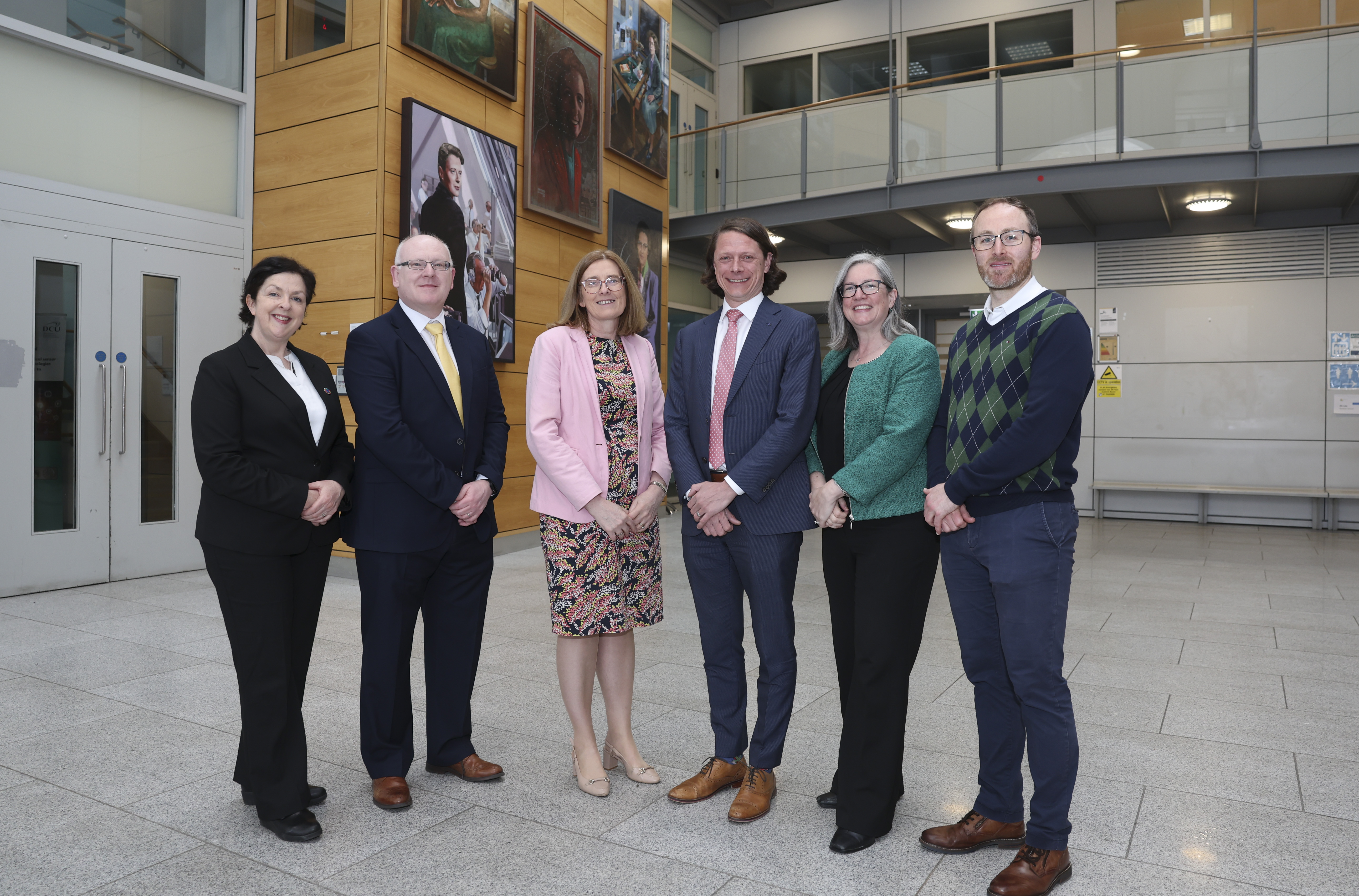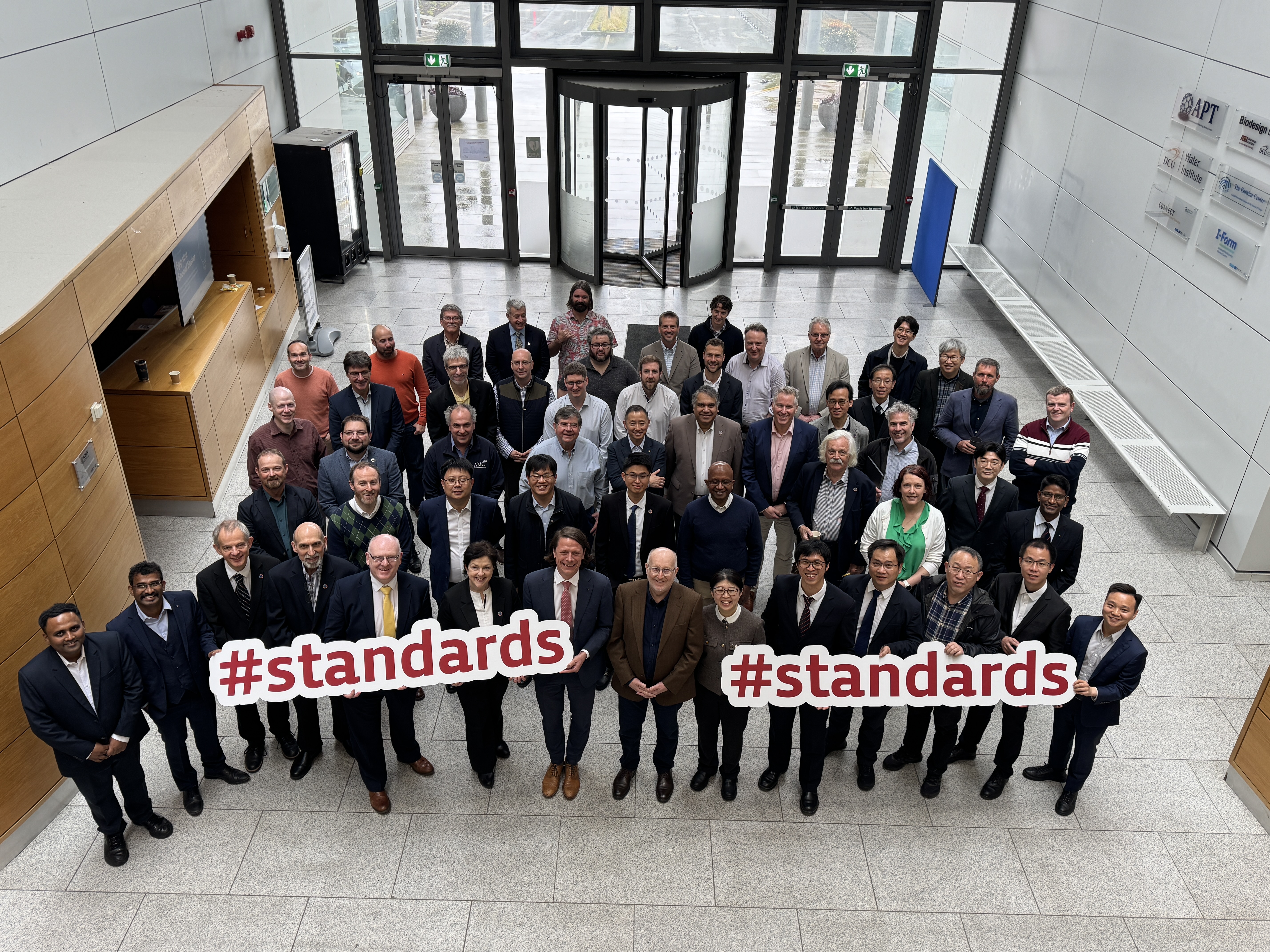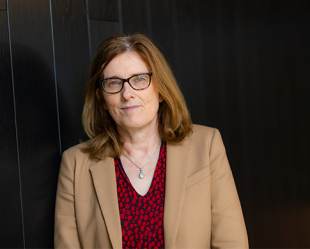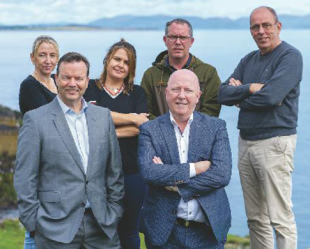The National Standards Authority of Ireland (NSAI), in collaboration with Dublin City University (DCU), are co-hosting the upcoming plenary meeting of the International Electrotechnical Commission’s (IEC) Technical Committee 114 (TC 114) – Marine Energy: Wave, Tidal and Other Water Current Converters. The event is taking place at DCU today and will gather international experts to advance global marine energy standardisation efforts. Experts have been working together in working groups since Monday at NSAI HQ in advance of this meeting.
Marine energy is an emerging sector within the global renewable energy mix, with countries worldwide investing in wave and tidal technologies to diversify their energy sources. These technologies offer predictable and consistent power generation, making them an attractive complement to more variable sources such as wind and solar. As governments and industry accelerate the transition away from fossil fuels, marine energy has gained strategic importance for its potential to contribute to energy security and decarbonisation targets.
IEC/TC 114 plays a central role in this global momentum by developing international standards for marine energy conversion systems, including guidelines for their design, safety, performance measurement, and grid integration. These standards are crucial for supporting innovation, ensuring device reliability, and helping new technologies reach commercial viability. The committee’s work fosters collaboration across borders and provides a framework that benefits developers, regulators, and investors alike.

Geraldine Larkin, Chief Executive Officer of NSAI, expressed her enthusiasm for hosting the plenary meeting in Ireland:
“Standardisation is fundamental to the growth of renewable energy—marine energy included. It enables innovation by creating clarity and confidence for developers and investors while ensuring the highest levels of safety and environmental responsibility. NSAI is proud to contribute to this important work, which not only strengthens Ireland’s position in the global renewables sector but also supports our national transition to a low-carbon future.”
As geopolitical uncertainty continues to impact global energy markets, the need for secure, sustainable, and domestically sourced energy has never been more urgent. Marine energy offers a unique opportunity to harness indigenous resources in coastal nations like Ireland, reducing reliance on imported fossil fuels. In this context, international collaboration and the development of international standards are vital to accelerating deployment and ensuring long-term resilience in the energy system.
Fiona Regan, Director of the Water Institute at DCU also commented on the significance of the event and Ireland’s contributions to marine energy innovation:
“Ireland has made strong commitments to harnessing its vast offshore renewable energy resources, including wave and tidal power. DCU, along with the higher education sector has been central to these efforts, with active support of research, development and demonstration projects. We are honoured to host this important meeting and to help shape the future of marine energy through international collaboration and knowledge-sharing.”
This high-level gathering marks another milestone in Ireland’s ongoing leadership in the offshore renewables space. It reflects Ireland’s broader ambition to become a hub for clean energy expertise and innovation, underpinned by robust standards and strong cross-sectoral partnership.




